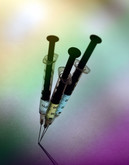Biosimilars/Research
|
Posted 02/03/2018
There is a complex global regulatory landscape when it comes to biosimilars. In particular, there is much debate over substitution practices. Substitution describes the practice where a pharmacist decides to change a product, dispensing an equivalent (generic small molecule) or highly similar product (biosimilar) without the prescribing physician’s prior consent. This is distinct from switching, whereby a physician changes a patient’s treatment, between reference product and a biosimilar, or between biosimilars. Between March and May 2017, Pfizer conducted an internal global survey of 82 countries in which it examined biosimilar pharmacy-mediated substitution. Here, the company hoped to understand and benchmark the global policy landscape [1].






























